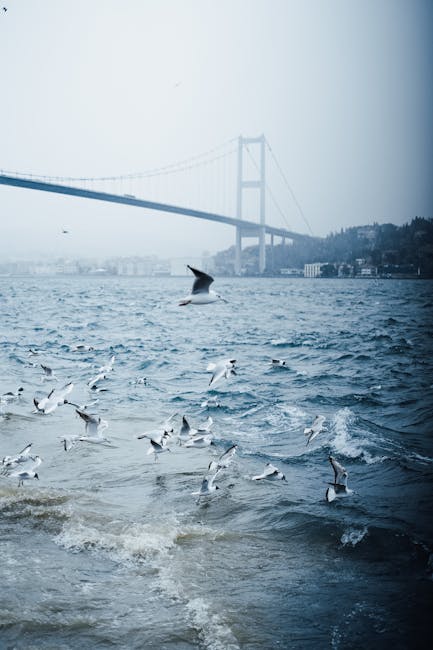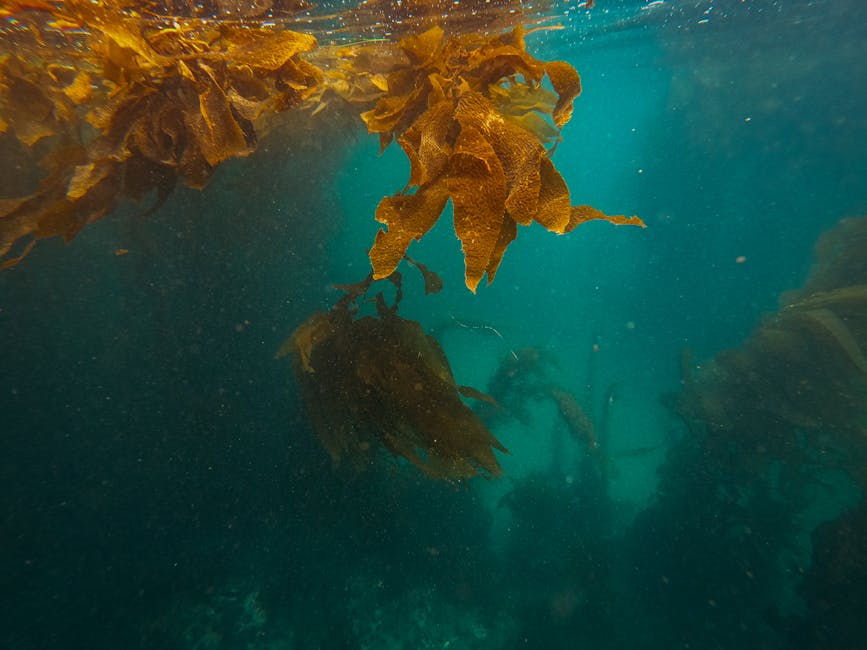- China Launches Military Drills: China has initiated aggressive military exercises in the Taiwan Strait.
- Strategic Location: The Taiwan Strait separates mainland China and Taiwan.
- Geopolitical Sensitivity: The strait is a major point of tension between China and Taiwan.
- Vital Trade Route: Nearly 40% of global container ships pass through the Taiwan Strait annually, making it critical for international trade.
- Historical Flashpoints: The strait has been a site of military and political conflict, including the Taiwan Strait Crises of 1954-55 and 1958. These crises involved artillery bombardments and U.S. intervention.
- De Facto Boundary: Since 1949, it has served as a de facto boundary between the People’s Republic of China (PRC) and Taiwan.
- Depth: The Taiwan Strait has an average depth of about 70 meters (230 feet).
11.04.25
Retired Hurricane Names 2024
-
Four Hurricane Names Retired: The World Meteorological Organization (WMO) retired the names Beryl, Helene, Milton, and John from its Atlantic and East Pacific storm lists.
- Why: These names are retired due to the significant devastation and trauma caused by the hurricanes in 2024, making their reuse insensitive.
-
Specific Storm Impacts:
- Beryl: Became the earliest Category-5 hurricane on record, impacting the Caribbean.
- Helene and Milton: Caused catastrophic damage in the United States.
- John: Resulted in deadly flooding in Mexico.
-
Replacement Names: The WMO has selected Brianna, Holly, and Miguel as replacements in the Atlantic, and Jake in the eastern Pacific.
-
Name Reuse Policy: Typically, storm names are reused every six years unless retired due to their severe impact.
-
India’s Cyclone Naming System: India employs a one-time naming system for cyclones in the Bay of Bengal and Arabian Sea, never reusing names.
-
Regional Coordination: The India Meteorological Department collaborates with a regional body of 13 countries to name cyclones, including India and neighboring countries like Bangladesh, Maldives, etc.
Indian President Honored
- City Key of Honour Award: The President of India received the ‘City Key of Honour’ from Lisbon, Portugal. It’s Lisbon’s highest honor, recognizing contributions to society and ties with Portugal.
- Symbolic Gesture: Acknowledges the strong and friendly relations between India and Portugal.
- 50th Anniversary: 2025 marks 50 years of India-Portugal diplomatic relations.
- Areas of Cooperation: India and Portugal can further cooperate in areas such as technological change, innovation, digital public infrastructure and digital transition.
- Historical Ties: The President highlighted the cultural ties between the two nations, reflected in shared architecture, historical sites, languages, and cuisines.
- Growing Partnership: Noted the steady growth in cooperation across various fields, including science, technology, defense, IT, startups, research, and education.
- Portugal’s Role: Appreciated Portugal’s role in promoting India’s relations with the European Union, referencing the first India-EU Summit held during Portugal’s EU Presidency in 2000.
- Knowledge-Based Economy: India views Portugal as a partner in leveraging its strengths as a knowledge-based economy, particularly in science, technology, and digital infrastructure.
- Bilateral Trade: The bilateral trade between the two countries stands at USD 1.5 billion, reflecting a 50% increase since 2020.
- Diaspora Connection: A significant Indian diaspora of around 1.25 lakh people resides in Portugal.
Agasthyamalai Reserve
- Supreme Court Order: Directs the Central Empowered Committee (CEC) to conduct a detailed survey of the Agasthyamalai landscape.
- Survey Aim: To identify non-forestry activities and encroachments violating the Forest Conservation Act, 1980, and the Wildlife (Protection) Act, 1972. Also, to compare forest cover data to assess degradation.
- Key Areas: Survey to include Periyar Tiger Reserve, Srivilliputhur Grizzled Squirrel Wildlife Sanctuary, Meghamalai and Thirunelveli Wildlife Sanctuaries.
- Agasthyamalai Importance: A UNESCO-recognized 3,500 sq. km biosphere reserve spanning Tamil Nadu and Kerala, part of the Western Ghats. Home to unique flora and fauna like Neelakurinji, Lion-Tailed Macaque and indigenous communities like the Kani tribe.
- Restoration Focus: Survey is an interim measure to restore the forests, protect tiger habitats, wildlife reserves and sanctuaries within the biosphere.
- Data Requirements: The CEC report must contain comparative data showing changes in forest cover to gauge the extent of depletion.
- Forest Depletion Impact: The court acknowledges forest destruction contributes to climate change.
- State Commitment: Tamil Nadu assures commitment to remove encroachments and restore the landscape.
- Background: The judgment arose from petitions to preserve forests, wildlife sanctuaries, and tiger reserves in Tamil Nadu, including the rehabilitation of workers evicted from a tea estate.
Torture & Police Reform
-
Custodial Torture Prevalence: CSDS survey reveals high acceptance of custodial violence among police personnel; 63% justified violence for serious crimes, 30% even for minor offences.
-
Institutional Support for Torture: 42% of police personnel supported torture in terror cases, 28% for history-sheeters. Disturbingly, some justified mob justice and extra-judicial killings.
-
Legal Safeguard Violations: Despite legal protections (Article 21, D.K. Basu guidelines), custodial norms are routinely violated due to institutional gaps.
-
Need for Police Reforms:
- Overburden and Shortage: Understaffing, long working hours, and stress contribute to inefficiency and potential corruption.
- Politicization: Political interference compromises police autonomy and leads to misuse of laws.
- Inadequate Training: Outdated training methods hinder effective investigation, particularly in modern crimes.
- Outdated Infrastructure: Lack of modern tools and technology hampers effective policing.
- Public Trust Deficit: Marginalized communities often distrust the police.
-
Discrepancies and Impunity: Conflicting data on custodial deaths; zero convictions in custodial death cases (2018-2022) reveals deep impunity.
-
Factors Contributing to Torture: Colonial police culture, lack of accountability, political pressure, inadequate training, and public support for shortcuts.
-
Support for Reforms: Majority of police personnel support human rights training, anti-torture mechanisms, and evidence-based interrogation.
-
Kerala exception: Kerala police show a high compliance rate to following legal norms during arrests.
-
Need for a Law against Torture: To be enacted by India while ratifying the UN Convention and taking effective steps to insulate the police from external pressures as mandated by the Supreme Court.
Lions of the Sea
-
Aggressive Sea Lion Behavior: Normally non-aggressive sea lions along the California coast are exhibiting violent behavior, including attacks on humans.
-
Cause: Domoic Acid: This aggression is attributed to domoic acid, a neurotoxin produced by the algae Pseudo-nitzschia during algal blooms.
-
Neurotoxin Effects: Domoic acid affects sea lions’ neural networks, causing stress, muscle spasms, brain damage, and aggression.
-
Food Chain Contamination: The neurotoxin enters the marine food chain, affecting fish and then larger predators like sea lions.
-
Algal Blooms: Algal blooms are triggered by nutrient accumulation due to upwelling (caused by winds intensified by global warming) and effluent release. Runoff from wildfires is also suspected of disturbing marine ecology and contributing to bloom.
-
Human Risk: Domoic acid can be lethal to humans in high concentrations.
-
Ecological Importance: Sea lions are apex predators crucial for marine ecosystem balance and serve as bioindicators of ocean health.
-
Global Threats: Sea lions face threats from climate change, overfishing, and entanglement in marine debris.
-
Conservation Efforts: India collaborates via CMS (Convention on Migratory Species) and enforces marine protected areas. Rehabilitation facilities exist for sea lions affected by algal blooms.
Jyotiba Phule: Crusader
- Birth Anniversary Tributes: Prime Minister Narendra Modi and Union Home Minister Amit Shah paid tribute to Mahatma Jyotiba Phule on his birth anniversary, recognizing his contributions to social reform and the welfare of marginalized communities.
- Modi’s Remarks: Modi called Phule a “true servant of humanity” who dedicated his life to the exploited and deprived, emphasizing his inspirational contribution to the country.
- Shah’s Statement: Shah highlighted Phule’s commitment to empowering the backward and deprived, his pioneering role in women’s education, and his work through the Satyashodhak Samaj to free society from evils.
- Phule’s Background: Born on April 11, 1827, in Maharashtra, Jyotirao Phule was a social reformer, educator, and writer known for his fight against caste discrimination and gender inequality.
- Education & Reform: He established schools for girls and marginalized communities, founded night schools for working-class individuals, and started the Satyashodhak Samaj to promote social equality.
- Women’s Rights Advocacy: Phule advocated for widow remarriage and fought against child marriage and female infanticide, with his wife Savitribai Phule becoming India’s first female teacher.
- Literary Works: Authored “Gulamgiri” (Slavery) and “Shetkaryacha Asud” (Cultivator’s Whip), critiquing caste oppression and farmer exploitation.
- Opposition to Caste System: He strongly opposed the caste system and Brahmanical traditions, calling for its abolition to achieve true social justice.
- Satyashodhak Samaj: Phule formed the Satyashodhak Samaj to attain equal rights for peasants and lower castes, seeking truth and social equality.
PM-POSHAN
-
Increased Material Cost: The Government of India has approved a 9.5% hike in material cost under the PM-POSHAN scheme, effective from May 1, 2025. This translates to an additional central expenditure of ₹954 crore for the financial year 2025–26.
-
Revised Costs: The revised material cost per student per day is ₹6.78 for Balvatika/Primary (from ₹6.19) and ₹10.17 for Upper Primary (from ₹9.29). States/UTs can contribute more for enhanced nutrition.
-
Nutritional Norms: Balvatika/Primary students need 20g pulses, 50g vegetables, 5g oil. Upper Primary students need 30g pulses, 75g vegetables, 7.5g oil.
-
CPI-RL Data: Inflation data for the PM-POSHAN meal basket is supplied by the Labour Bureau using the Consumer Price Index – Rural Labourers (CPI-RL) from 600 villages across 20 states.
-
Scheme Overview: PM-POSHAN (formerly Mid-Day Meal Scheme) provides one hot cooked meal per school day to 11.20 crore children in Balvatikas and Classes 1-8 in 10.36 lakh government/aided schools.
-
Objectives: The scheme aims to enhance nutritional status, improve enrollment, retention, and attendance, especially among disadvantaged children.
-
Central Contribution: The Centre also provides 26 lakh MT of food grains. The Centre bears 100% cost of food grains (including ₹9,000 crore subsidy) and transportation.
-
Per Meal Cost: Including all components, the per meal cost is approximately ₹12.13 for Balvatika/Primary and ₹17.62 for Upper Primary.
-
Centrally Sponsored Scheme: PM-POSHAN is a Centrally sponsored scheme to provide nutritional support and enhance school participation of students.
India Halts BD Trans-Shipment
- India ends transshipment facility for Bangladesh, effective April 8, 2025: This facility allowed Bangladeshi exports to transit through Indian ports and airports.
- Reasoning:
- Congestion: MEA cited significant congestion at Indian ports and airports due to the facility, hindering Indian exports.
- Industry Pushback: The Apparel Export Promotion Council (AEPC) lobbied for the removal, arguing it favored Bangladesh and hurt Indian exporters in the competitive RMG sector.
- China Factor: Strategic concerns arose after a Bangladeshi official’s remarks in China describing Bangladesh as the “guardian of the ocean” for Northeast India, potentially facilitating Chinese influence near the Siliguri Corridor. Invitation of Chinese investment in Lalmonirhat Airbase was also noted.
- Impact on Bangladesh: Higher export costs and potential delays for its USD 50 billion export sector, primarily RMG, affecting global competitiveness.
- Impact on India: Signals strain in relations with Bangladesh and potential conflict with WTO’s GATT Article V and TFA Article 11, which ensure freedom of transit for landlocked nations.
- Alternative Perspective: Some view the move as a response to Bangladesh’s growing ties with China, particularly near the strategically sensitive Siliguri Corridor (Chicken’s Neck).
- MEA Clarification: The withdrawal doesn’t impact Bangladesh’s exports to Nepal or Bhutan transiting through India.
- CBIC Notification: Officially rescinds the circular permitting transhipment of Bangladesh export cargo through Indian Land Customs Stations to ports/airports.








